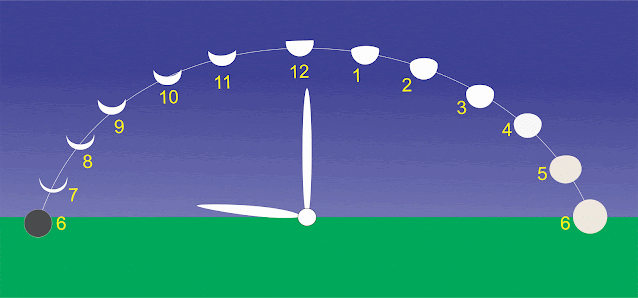(Heavy Weather to Continue in one More Winter Rains.)
The current winter which is coming to conclusion from last
November / December rains was marked by heavy deluges and floods, which make it
a heavier than normal weather.
Analysis through the General Theory of Gravitational
Dynamics and Life shows that Earth weather is determined by orbital patterns of
the Solar system, galaxies and the cosmos at large.
Depressions and bumps in orbital paths produce gravitational
disturbances which set oscillatory waves through the orbiting order.
The oscillation waves on a graphical chart shows severe
weather such as El-Nino or La-Nina recur in cycles of about six years. Since
the last El-Nino like rains in 2018, the current rains are a repetition of a
similar weather.
Tell-tell signs of an approaching heavy weather in the
gravitational dynamics theory are mainly a warmer than usual July, star
alignments in the sky which include sighting of a bright star close to the moon
as well as unusual astronomical sightings such as a comet.
These signs had been observed before the present heavy winter.
Detailed research on weather patterns in this blog shows the heavy weather will
repeat itself in one more coming winter before changing to a different weather
type.
Weather waves on a graphical chart shows six different winter
weather types in a cycle of six years. There are usually two winter seasons in
a year. This means after every two consecutive heavy winter rains, there
follows one year of lighter rains characterized by short lived deluges which
lead to relatively reduced harvest.
After this in the third year a drought of thin or no rainfall at all takes over, in some cases being of La-Nina severity. After the drought which takes one year, lean rains follow which do not help with better harvest and the subsequent famine continues for about two years. Relief is only found from improved rains after the two year famine. Normal rains take over in the sixth year and continue for one year before the cycle repeats itself after the six years.
The six different winter types in the six-year cycle are
not necessarily of fixed magnitude; there may be variations in intensity in
which some El Nino type rains may be higher than others, while some droughts
may be more severe than others. The lean rains in-between may be of varying
intensity.
Close analysis of the weather patterns shows weekly weather
is operated by orbital fluctuations and oscillations of the moon’s orbit, which
generally shows three days of rain or cloudy weather and alternate three days
of sunny weather. Therefore, the suction and discharge stroke for the rain pump
during winter is operated by the moon. The discharge points of the moon in the
sky during winter are SOMETIMES the first three crescent moons, the three half-moons
and the three full moons. Corresponding
days in winter can be forecast as rainy or sunny.
Close analysis on a graphical chart clearly confirms
this.
The last La-Nina like drought had been predicted in this website
with all its adverse effects put as early warnings; insecurity was one of them.
The author, Philip Mythland (Philip Maithya) lost his android phone during the
period from insecurity resulting from suspected cross-border immigrations from
neighboring countries.
The economic recession caused by the corona epidemic and
worsened by the LaNina drought saw Philip out of business in Signs and Branding
and general computer graphics, as a result, he retreated to his rural home in
End-au or Endau, situated in the east end of Kitui county.
End-au (Endau) was famous for its au-inspiring cattle trails
and grasslands in yester years.
The graphics sector for Signs and Branding is not well
developed in this region to sustain Philip economically and is currently marooned
here. The inability to access his advertising funds is from being unable to
afford a compatible android phone for online payments.
Hopes to eventually release detailed research findings on
weather patterns, and the precious discovery of immense water quantities in the
air we breathe.

